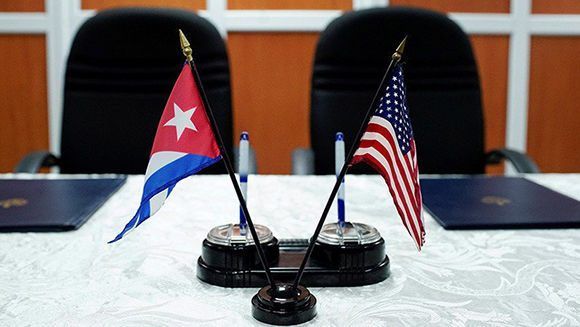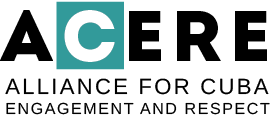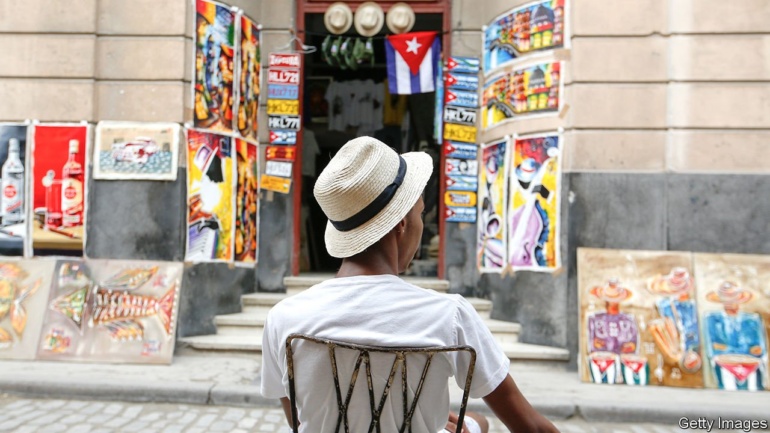
On May 16, 2022, the Biden administration announced new measures towards Cuba, taking an important step towards restoring the policies of engagement and reversing some Trump-era policies. ACERE welcomes the White House announcement, including the reinstatement of the Cuban Family Reunification Parole Program that will provide for the reunification of many Cuban families, as well as the promised increase of services and visa processing at the U.S. Consulate in Havana. However, we are disappointed to learn that many visa applicants will continue to have to travel to Guyana for processing there. Partly reinstating visa application procedures and recommitting to the minimum limits established by the U.S.-Cuba Migration Accords will help contribute to safer migration.
Lifting the cap on family remittances and authorizing donative remittances is a long overdue announcement and will alleviate some of the suffering of ordinary Cuban citizens. It is still unclear, however, how this will be carried out in practice given that Fincimex – the Cuban entity through which remittances are distributed in Cuba – remains on the U.S. sanctions list.
Lastly, the U.S. will authorize access to certain digital services, including some applications, e-commerce platforms and electronic payment sites, in addition to granting entrepreneurs access to microfinancing. To the extent that companies under U.S. jurisdiction will no longer face sanctions for offering their services in Cuba, those needing such services will have more opportunity to access them openly.
ACERE welcomes these needed and overdue changes in U.S. policy towards Cuba. They are a refreshing sign of a return to diplomacy and engagement, particularly after the recent high-level bilateral talks regarding the U.S.-Cuba Migration Accords. However, much remains to be done not only to restore U.S. policy to that of the Obama-Biden administration, but to move towards full normalization of relations. While these are significant steps forward, the reality is that over 200 cruel sanctions left by the Trump administration remain.
Despite the easing of regulations, any travel to the island by people living in the U.S. must still be authorized by the Department of Treasury. The right to travel freely requires lifting all travel restrictions on U.S. citizens and residents’ ability to travel, including as tourists, and to engage in normal tourist activities without fear of facing sanctions. The Biden administration can and should reinstate the ability of U.S. citizens and residents to travel for educational “people to people” visits and to exchange ideas and experiences with people in Cuba. Cruise ships should not face fear of lawsuits or sanctions when offering to take people to Cuba, nor be responsible for restricting their travel itinerary based on what the U.S. government allows or disallows in another country’s sovereign space. Reinstatement of the waiver under Title III of the Helms-Burton Act is an immediate and necessary step to show the travel sector that these new policy measures are substantive and not in name only.
In addition, U.S. citizens and residents who travel to Cuba should be able to engage in normal financial transactions as they do everywhere else in the world, including using their credit cards. Such transactions have been prohibited in Cuba, and made even more challenging by the totally unjustified U.S. placement of Cuba on the State Sponsors of Terrorism List, which deters most financial institutions from engaging in any sort of transaction with Cuba and limits Cuba’s ability to access credit for basic goods and services. Until Cuba is removed from the SSOT list, engaging in trade or receiving humanitarian assistance will be severely hampered, including as Cuba continues to respond to the COVID-19 pandemic and engage in global vaccine assistance efforts.
While ACERE is encouraged by these initial small steps, the U.S. continues to spend more than $25 million per year in regime change programs against Cuba. Just as it is illegal for a foreign power to funnel millions of dollars to the United States in an effort to topple the government, it is a violation of international law for the United States to engage in similarly subversive activities against a neighboring country.
Ultimately, ACERE urges the United States to lift the illegal embargo, which is still in place and has been condemned by nearly every member state of the United Nations. The embargo’s overt purpose is to strangle the Cuban economy to promote regime change. We hope that as the Biden administration continues to undergo a review of its Cuba policy, lifting the embargo – which the President has the discretion to dismantle – will be the priority.




1 Comment
Bill Camp
This is very well said. I plan to circulate this statement to the Central Labor Councils of the AFL-CIO in California.
Thank you for your great work.
Bill Camp
916-612-9999
Comments are closed.